| 1. Nigeria | Vulnerabilities | Irrigation | Coping Strategies | Drought | |
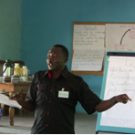 |
Talitha Tukura (Nigeria), Orleans Mfune (Zambia) and Conrad Otterness (US) spent eight months in 2011 working with 200 families in Kwall, Nigeria who are suffering from chronic food shortages caused by difficult access to water and from climate variability that impacts harvests.
|
| 2. 7 Years of extreme weather in Grenada increases malnutrition & poverty | |
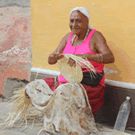 |
Meredith Waters (US) and Gillian Primus (Grenada) have been working for the past six months on a project on the Island of Grenada that has been hit by a series of tropical hurricanes and tropical storms exhibiting increased ferocity over the past seven years. |
|
The CBA program they designed relates to the challenges of climate variability: extreme weather, and unpredictable rainy season that have reduced crop harvests—and includes a Farmer Soil Conservation and a Water Conservation and Management Program.
|
|
| 3. Yadua Village, Fiji: 200 people are suffering climate change induced rising sea levels | |
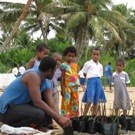 |
Partners Loraini Sivo (Fiji) and Fatema Rajabali (Kenya/UK) worked this year on a project in a small fishing village in Fiji.
|
200 people in the village of Yadua, Fiji are suffering from increased shoreline erosion caused by increased wave actions due to the loss of mangrove forest and a reef which acted as buffers—and climate change induced rising sea levels. Their project is an ecosystem based adaptation program restoring mangrove and reef systems to act again as natural buffers.
| 4. Forest Reserve Nigeria: REDD+ | NTFPs | Climate Smart Agroforestry | |
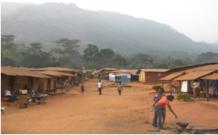 |
Bridget Nkor (Nigeria), Jason Yapp (Malaysia/UK) & Donatella Fregonese (Italy/UK) began developing a project with the indigenous Buanchor community who are the custodians of the Afi Forest Reserve—a habitat for gorilla—and biodiversity hotspot.
|
|
The community is suffering from a loss of environmental services provided by the forest due to forest encroachment and poaching.
The adaptation project includes the development of Non-Traditional Forest Products, a REDD+ forest stewardship program, and a climate smart agroforestry program.
|
|
| 5. Ethiopia | Food/HIV | Food Security | Urban Gardening | Income Generation |
|
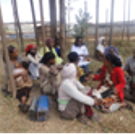 |
Alem Yalew Adela (Ethiopia) and Margie Huang (US/Ethiopia) are working on a CBA/DRR program and an income generation program with 265 families in Sebeta Town, Ethiopia. Community members suffer from chronic poverty due to lack of sources of income generation and savings/microcredit—and also suffer from reduced crop harvests due to a shortage of rain linked to climate change. |
|
The DRR program is extremely interesting because unlike focusing on reducing risk to floods, rising sea level, or extreme weather events—it’s focusing on reducing risk such that the community will be prepared for climate change impacts that will adversely impact agricultural production and hence, food security.
|
|
| 6. Agroforestry and Conservation Agriculture for Malawi Food Security | |
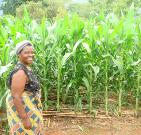 |
Jo Thomas (UK/Malawi) and Marina France (US) began developing a food insecurity project in May in the Phalula Village in Malawi.
770 families face food security as a result of land degradation and climate change linked variable and unpredictable rainfall patterns.
|
|
Our partners developed an agroforestry income generation program that looks first at identifying markets before choosing agricultural products to plant. |
|
| 7. British Virgin Islands: Climate change induced heavy rains degrade coastal water quality & impact local economy | |
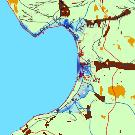 |
Climate change has caused an increase in heavy rains on Tortola island and the storm water runoff causes flooding and deposits sediments and pollutants into the bay reducing water quality. Tourism is a major source of revenue for Tortola and this reduction in water quality has not only impacted a fragile environment—but has affected the island’s business economy. |
|
Angela Burnett and Atoya George of the British Virgin Islands Department of Conservation and Fisheries, and have been working on a project which includes a Community Flood Resilience Programme, a Drainage Maintenance and Improvement Programme, and a Sedimentation Reduction Programme
|
|
| 8. Best of February Online Resources for CBA Practitioners | |
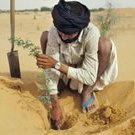 |
|
| 10. New CSDi Release: 50 Solution-Oriented Programs for Community Challenges in Relief, Development & Adapatation | |
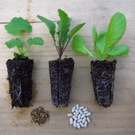 |
Here are a range of solutions in the form of programs and activities that past students have used successfully in addressing project challenges. Feel free to use them, modify them, or develop your own solutions instead. Many of the programs are highly specific to one student’s project and will need to be adapted to fit yours. Many of the programs have multiple activities; these are to give you options for customizing your own programs: edit the activities down as you see fit for your project.
|
1. Community-Based Adaptation: 300 Hands-On Field Activities.
2. Student Countries and Project Challenges.
xal5ri
x8895p
bmygvt
acaid6